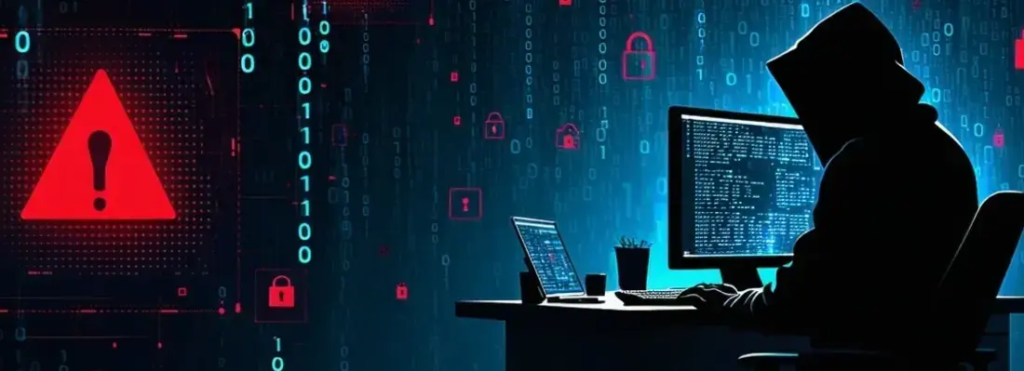In a shocking turn of events, Chicago city government systems were breached in a significant cyberattack that has raised concerns about digital security in U.S. municipalities. The cybersecurity breach affected several municipal networks, including communication servers, financial systems, and some databases storing sensitive information.
The breach, first discovered earlier this week, has sparked emergency efforts to contain the threat, assess the damage, and prevent future attacks. A joint response is now underway involving local, state, and federal cybersecurity teams, including support from the FBI and the Cybersecurity and Infrastructure Security Agency (CISA).
What Happened in the Cybersecurity Breach?
According to city officials, the breach was detected when unusual activity was noticed in the network’s data flow. IT staff identified unauthorized access to key systems that manage internal communications, utility payments, and citizen data.

“We are treating this incident with the highest level of urgency,” said Chicago Mayor Brandon Johnson. “Our immediate focus is to secure affected systems, ensure the protection of sensitive data, and restore normal operations as quickly as possible.”
Preliminary investigations suggest the hackers exploited a vulnerability in a third-party application used by multiple departments. While authorities have not confirmed the full scope of the data stolen, early reports indicate that personal and financial information of both government employees and residents may have been exposed.
For more on how local governments handle digital threats, check out this CISA resource.
Federal Agencies Join in Chicago’s Cyber Defense
Following the discovery of the breach, federal agencies were called in to assist with the investigation and response strategy. The FBI’s cybercrime division and CISA are working alongside city officials to track down the hackers and close security gaps.
A spokesperson from the FBI stated, “We are coordinating closely with city officials and our federal partners to uncover who is responsible and ensure justice is served. We are also providing technical support to help the city harden its digital infrastructure.”
Meanwhile, Chicago’s IT department has shut down multiple vulnerable systems temporarily while implementing stronger authentication protocols and monitoring tools.
To understand how cyberattacks are handled on a national scale, read this detailed breakdown on Homeland Security’s cyber response.
How Are Chicago Residents Affected?
The city government has assured the public that essential services like emergency response, water, and electricity remain operational and unaffected. However, services that depend on digital access—such as paying bills, accessing municipal records, or applying for permits—have been temporarily disrupted.
Residents are urged to:
- Change any passwords connected to city services.
- Monitor their bank and credit card activity.
- Watch for suspicious emails or phishing attempts.
Chicago’s Department of Innovation and Technology (DoIT) has set up a dedicated hotline and website to answer questions and provide updates. Visit Chicago’s Cybersecurity Response Hub for the latest info and safety tips.
Experts Warn of Growing Threat to City Governments
This latest breach adds to a growing list of cyberattacks targeting U.S. cities, including similar incidents in Atlanta, Baltimore, and New Orleans in recent years. Cybersecurity experts warn that many local governments remain underfunded and underprepared for sophisticated cyber threats.

“City governments are attractive targets because they collect so much data but often lack the cyber defense budgets seen in the private sector,” said Dr. Karen Mitchell, a cybersecurity analyst at Northwestern University. “This incident in Chicago is a wake-up call for municipalities across the country.”
To learn more about how cities can build better defenses, read this guide on municipal cybersecurity planning.
Next Steps: Chicago’s Cybersecurity Overhaul Plan
In response to the attack, Chicago is initiating a comprehensive review of its cybersecurity policies and infrastructure. Some of the planned upgrades include:
- Implementation of zero-trust security frameworks
- Mandatory multi-factor authentication across all systems
- Advanced threat detection and AI-based monitoring tools
- Regular employee training and awareness programs
“We are not just fixing what’s broken; we’re redesigning our system from the ground up,” said Robert Mahoney, Chief Information Security Officer (CISO) for the city. “Cybersecurity will no longer be a backroom IT function—it will be central to how our city operates.”
For more insights into how zero-trust models work in public sector environments, see this NIST explanation.
Public Trust and Long-Term Implications
While the technical response is underway, Chicago officials are also focused on restoring public trust. Town hall meetings and public briefings are being scheduled to maintain transparency and educate residents on how to protect their data.
Legal experts say the city could face lawsuits if evidence shows negligence in protecting user data. Data privacy laws, both state and federal, may require Chicago to notify all affected individuals and potentially provide compensation or credit monitoring services.
This breach also underscores the importance of data security in public institutions. As cities become more digital, cybersecurity must become a priority at every level of governance, not just a technical concern.
Conclusion: A New Chapter for Chicago’s Digital Security
The cybersecurity breach in Chicago is a stark reminder that even major cities are not immune to evolving cyber threats. With digital systems now central to how cities operate, the need for stronger, smarter, and more proactive security measures has never been greater.
This incident, while disruptive, offers a chance for Chicago—and other cities—to invest in future-proofing their digital infrastructures, protecting citizens, and setting a national standard in municipal cybersecurity.
For ongoing coverage of this incident and cybersecurity updates, follow trusted tech sources like Wired and TechCrunch.
Also Read – Google Rolls Out Powerful Gemini AI In Major Update






